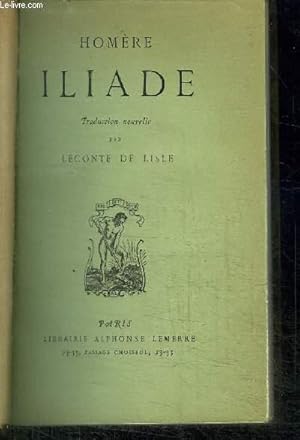

Fragments of Homer account for nearly half of all identifiable Greek literary papyrus finds. Homer's works, which are about fifty percent speeches, provided models in persuasive speaking and writing that were emulated throughout the ancient and medieval Greek worlds. The formative influence of the Homeric epics in shaping Greek culture was widely recognized, and Homer was described as the teacher of Greece.

Most modern researchers place Homer in the 7th or 8th centuries BCE. Herodotus estimates that Homer lived 400 years before his own time, which would place him at around 850 BCE, while other ancient sources claim that he lived much nearer to the supposed time of the Trojan War, in the early 12th century BCE. These epics lie at the beginning of the Western canon of literature, and have had an enormous influence on the history of literature. The result is a volume that actively invites readers into Homer’s poem, helping them to understand fully the worlds in which he and his heroes lived-and thus enabling them to marvel, as so many have for centuries, at Hektor and Ajax, Paris and Helen, and the devastating rage of Achilleus.In the Western classical tradition, Homer (Greek: Ὅμηρος) is considered the author of The Iliad and The Odyssey, and is revered as the greatest of ancient Greek epic poets. A new introduction sets the poem in the wider context of Greek life, warfare, society, and poetry, while line-by-line notes at the back of the volume offer explanations of unfamiliar terms, information about the Greek gods and heroes, and literary appreciation. Lattimore’s elegant, fluent verses-with their memorably phrased heroic epithets and remarkable fidelity to the Greek-remain unchanged, but classicist Richard Martin has added a wealth of supplementary materials designed to aid new generations of readers. This long-awaited new edition of Lattimore’s Iliad is designed to bring the book into the twenty-first century-while leaving the poem as firmly rooted in ancient Greece as ever.

"Sing, goddess, the anger of Peleus’ son Achilleus / and its devastation." For sixty years, that’s how Homer has begun the Iliad in English, in Richmond Lattimore’s faithful translation-the gold standard for generations of students and general readers.


 0 kommentar(er)
0 kommentar(er)
